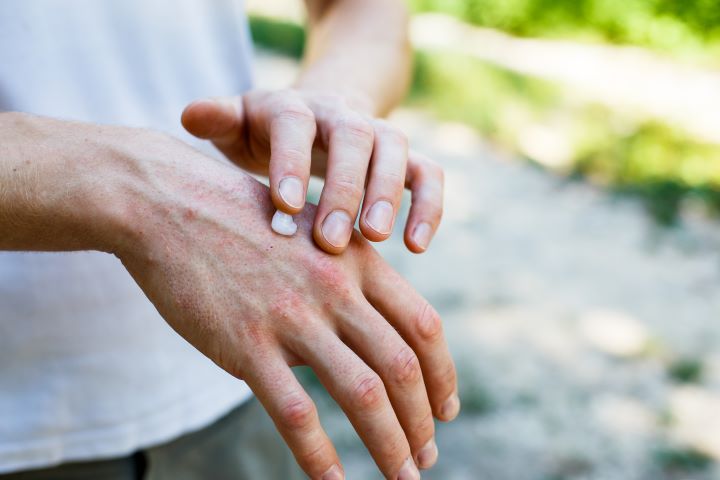Eczema Treatment: Finding Relief for Persistent Skin Conditions
Eczema, also known as atopic dermatitis, affects millions worldwide with its characteristic red, inflamed, and itchy skin patches. This chronic skin condition can significantly impact quality of life, causing discomfort, sleep disturbances, and social challenges. While there is no definitive cure for eczema, numerous treatment approaches can effectively manage symptoms, reduce flare-ups, and provide relief. From topical medications and moisturizers to lifestyle modifications and dietary changes, understanding the available treatment options is essential for those seeking to control their eczema symptoms and improve skin health.

How to Make Eczema Go Away Fast
When experiencing an eczema flare-up, several strategies can help accelerate healing and provide relief. First, identifying and eliminating triggers is crucial—common culprits include certain fabrics, soaps, detergents, stress, and environmental factors like extreme temperatures or low humidity. Applying a cold compress to affected areas for 10-15 minutes can reduce inflammation and itching. Over-the-counter hydrocortisone creams (1%) may temporarily relieve mild eczema symptoms, though they should be used sparingly and according to package instructions.
For faster relief of more severe flare-ups, prescription treatments may be necessary. Topical corticosteroids reduce inflammation and are available in various potencies depending on symptom severity and affected body regions. Topical calcineurin inhibitors (TCIs) like tacrolimus and pimecrolimus offer steroid-free alternatives that suppress inflammation. For widespread or resistant cases, oral antihistamines can help control itching, while short-term oral or injectable corticosteroids might be prescribed for severe flares. Light therapy (phototherapy) using narrowband UVB light has also proven effective for treating moderate to severe eczema within several weeks of consistent treatment.
Best Moisturizer for Severe Eczema
Moisturizing is fundamental in eczema management, particularly for severe cases where skin barrier function is significantly compromised. Ideal moisturizers for severe eczema typically contain ceramides, which are lipid molecules that help restore the skin’s protective barrier. Products with ceramides help lock in moisture and protect against irritants. Hyaluronic acid is another beneficial ingredient that draws moisture into the skin, while colloidal oatmeal provides anti-inflammatory properties that soothe irritated skin.
Ointments generally provide the most intensive moisturization for severe eczema, as their occlusive nature creates a protective barrier that prevents moisture loss. Petroleum-based products like petroleum jelly offer excellent barrier protection without additives that might irritate sensitive skin. Creams deliver a balance between moisturizing power and comfort, making them suitable for daily use, while lotions typically contain more water and less oil, making them less effective for severe eczema but more comfortable in hot or humid conditions.
For severely dry, cracked skin, products containing urea or lactic acid can help exfoliate and hydrate simultaneously, though these ingredients may cause temporary stinging on open or very irritated skin. When selecting a moisturizer, fragrance-free and hypoallergenic formulations minimize the risk of further irritation. Products bearing the National Eczema Association’s “Accepted” seal have been evaluated for ingredients that might irritate sensitive skin.
Food that People with Eczema Should Not Eat
Diet plays a significant role in eczema management for many patients, as certain foods can trigger or worsen symptoms through inflammatory responses. Common food triggers include dairy products, especially cow’s milk, which contains proteins that may provoke allergic reactions in sensitive individuals. Eggs—particularly egg whites—are another frequent culprit, with proteins that can cross-react with skin proteins and trigger inflammation in some people with eczema.
Gluten-containing foods may exacerbate eczema symptoms in those with gluten sensitivity or celiac disease. Research suggests a potential link between gluten consumption and increased inflammation in susceptible individuals. Foods high in refined sugars and processed carbohydrates can elevate blood sugar levels, potentially increasing inflammation throughout the body, including the skin.
Certain nuts, particularly peanuts, tree nuts, and soy products, are common allergens that may trigger eczema flares in sensitive individuals. Similarly, some people with eczema react to nightshade vegetables (tomatoes, eggplant, peppers, potatoes) due to their natural alkaloids. Processed foods containing artificial preservatives, colors, and flavors—such as sodium benzoate, monosodium glutamate (MSG), and sulfites—may provoke reactions in some individuals.
Effective Eczema Treatment Approaches
A comprehensive approach to eczema treatment typically combines multiple strategies tailored to individual needs. The cornerstone of any treatment plan is a regular skincare routine—daily bathing with lukewarm water (avoiding hot water, which strips natural oils) followed by immediate application of moisturizer helps lock in hydration. Using mild, fragrance-free soaps or soap substitutes prevents further irritation. For many patients, applying moisturizer multiple times throughout the day, particularly after handwashing, maintains skin hydration.
Medical treatments for eczema target different aspects of the condition. Anti-inflammatory medications reduce redness, swelling, and itching, while immunomodulators help regulate overactive immune responses that contribute to inflammation. For persistent cases, systemic medications like methotrexate, cyclosporine, or newer biologics such as dupilumab target specific components of the immune system that drive eczema.
Complementary approaches include wet wrap therapy—applying damp gauze or clothing over moisturizer and affected areas to enhance absorption and provide relief. Stress management techniques such as mindfulness meditation, yoga, or deep breathing exercises can help reduce flare-ups triggered by psychological stress. For some patients, particularly those with extensive or treatment-resistant eczema, allergen identification through testing may guide personalized avoidance strategies.
Managing Environmental Factors for Eczema Control
Environmental management plays a crucial role in eczema control. Maintaining indoor humidity between 45-55% using humidifiers helps prevent skin dryness, particularly during winter months or in air-conditioned environments. Dust mite control measures—including regular vacuuming with HEPA filters, washing bedding weekly in hot water, and using dust mite-proof covers for mattresses and pillows—can reduce exposure to these common allergens.
Choosing clothing made from smooth, breathable fabrics like cotton while avoiding rough materials like wool or synthetic fibers minimizes skin irritation. Similarly, laundry practices impact eczema management—using fragrance-free, dye-free detergents and double-rinsing clothes removes potential irritants. Temperature regulation helps prevent sweat-induced flares, as perspiration contains salt that can irritate eczema-prone skin.
Air quality improvements, such as using air purifiers with HEPA filters to reduce airborne allergens and irritants, create a more skin-friendly environment. During seasonal changes, when temperature and humidity fluctuations can trigger flares, adjusting skincare routines accordingly—typically using heavier moisturizers in dry or cold conditions and lighter products in humid weather—helps maintain skin barrier function.
This article is for informational purposes only and should not be considered medical advice. Please consult a qualified healthcare professional for personalized guidance and treatment.




